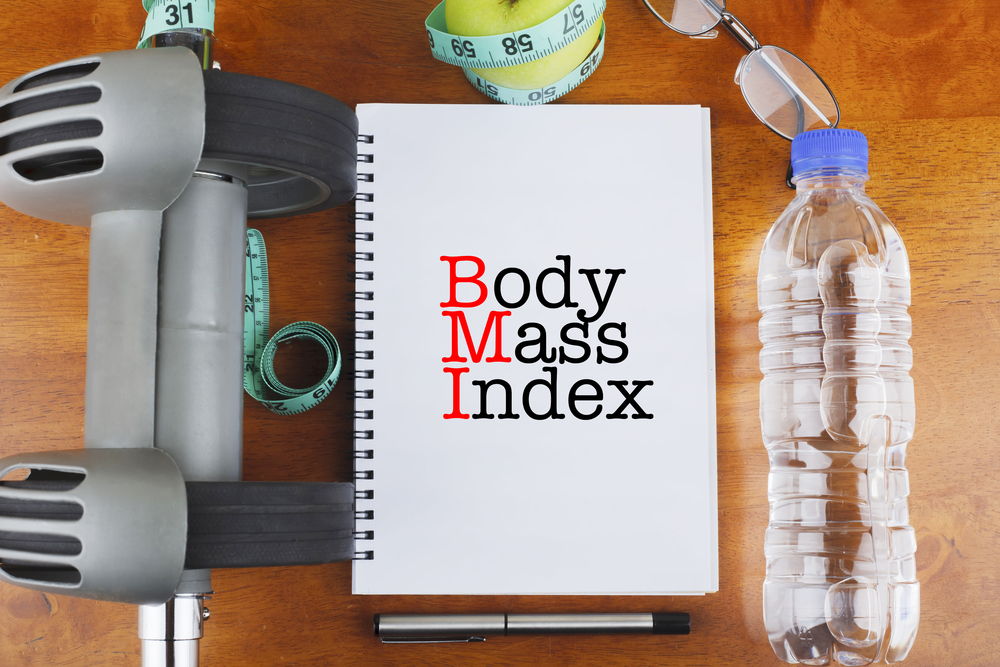“How much should I weigh?”
…is probably among the most common questions many people ask themselves. As you might remember from my recent post, your body weight impacts our health in a number of ways. In fact, how much you weigh (and conversely how much you eat) is even more important than what you eat.
Therefore, having a good target weight in mind when starting a diet is definitely important so in this post, I will give you a short overview of what weight ranges count as normal, overweight and obese.
When determining the ideal health range for your height, most health professionals will use the Body Mass Index (BMI) for their calculations, which is defined as your body weight (in kilograms) divided by the square of your height (in meters). So for example, if someone weighs 80 kilograms and is 1.8 meters tall their BMI will be around 24.69.
Your BMI will then be checked to see where it falls on the following range:
Less than 18.5: Underweight
Between 18.5 and 25: Healthy weight
Between 25 and 30: Overweight
Over 30: Obese
Here is a table that includes these weight ranges, ordered by height:
| Normal | Overweight | Obese | Extreme Obesity | |
| 4ft 10″ | 91 to 115 lbs. | 119 to 138 lbs. | 143 to 186 lbs. | 191+ lbs |
| 4ft 11″ | 94 to 119 lbs. | 124 to 143 lbs. | 148 to 193 lbs. | 198+ lbs. |
| 5ft | 97 to 123 lbs. | 128 to 148 lbs. | 153 to 199 lbs. | 204+ lbs. |
| 5ft 1″ | 100 to 127 lbs. | 132 to 153 lbs. | 158 to 206 lbs. | 211+ lbs. |
| 5ft 2″ | 104 to 131 lbs. | 136 to 158 lbs. | 164 to 213 lbs. | 218+ lbs. |
| 5ft 3″ | 107 to 135 lbs. | 141 to 163 lbs. | 169 to 220 lbs. | 225+ lbs. |
| 5ft 4″ | 110 to 140 lbs. | 145 to 169 lbs. | 174 to 227 lbs. | 232+ lbs. |
| 5ft 5″ | 114 to 144 lbs. | 150 to 174 lbs. | 180 to 234 lbs. | 240+ lbs. |
| 5ft 6″ | 118 to 148 lbs. | 155 to 179 lbs. | 186 to 241 lbs. | 247+ lbs. |
| 5ft 7″ | 121 to 153 lbs. | 159 to 185 lbs. | 191 to 249 lbs. | 255+ lbs. |
| 5ft 8″ | 125 to 158 lbs. | 164 to 190 lbs. | 197 to 256 lbs. | 262+ lbs. |
| 5ft 9″ | 128 to 162 lbs. | 169 to 196 lbs. | 203 to 263 lbs. | 270+ lbs. |
| 5ft 10″ | 132 to 167 lbs. | 174 to 202 lbs. | 209 to 271 lbs. | 278+ lbs. |
| 5ft 11″ | 136 to 172 lbs. | 179 to 208 lbs. | 215 to 279 lbs. | 286+ lbs. |
| 6ft | 140 to 177 lbs. | 184 to 213 lbs. | 221 to 287 lbs. | 294+ lbs. |
| 6ft 1″ | 144 to 182 lbs. | 189 to 219 lbs. | 227 to 295 lbs. | 302+ lbs. |
| 6ft 2″ | 148 to 186 lbs. | 194 to 225 lbs. | 233 to 303 lbs. | 311+ lbs. |
| 6ft 3″ | 152 to 192 lbs. | 200 to 232 lbs. | 240 to 311 lbs. | 319+ lbs. |
| 6ft 4″ | 156 to 197 lbs. | 205 to 238 lbs. | 246 to 320 lbs. | 328+ lbs. |
| BMI | 19 to 24 | 25 to 29 | 30 to 39 | 40 to 54 |
Is The Body Mass Index Perfect?
Definitely not!
The BMI is the simplest measurement out there to estimate the health impact of a person’s weight. With this simplicity come quite a few drawbacks:
– It does not take into account waist, hip or chest measurements
– It does not take into account body fat and muscle mass percentages
– It does not take into account bone density (or generall bone mass)
What this means is that a well-trained athlete might have a higher BMI than the average untrained person of the same height (due to larger amounts of muscle in the athlete). But the athlete will have less body fat, a smaller waist and most likely enjoy better health.
So Is It Completely Useless?
Despite these problems, the BMI is still a good basic standard to show you what a healthy weight would look like. For the average person, if your weight falls within this range it will generally be regarded as healthy. This doesn’t mean gaining or losing weight will have no impact, but it simply means that any effects on your health will be minor.
However, if you are outside your range, losing weight (if you are overweight) and gaining weight if you are underweight will have a pretty substantial effect on your health and should, therefore, be prioritized.
Of course, always keep in mind that these figures are estimates and should be treated as such. You aren’t automatically “unhealthy” if you are outside your weight range and automatically healthy if you are within.
But what we can say is that based on the available data the likelihood of health is higher inside the ideal range and lower outside the optimal range. Also, the further you are away, the higher the chances of poor health.



